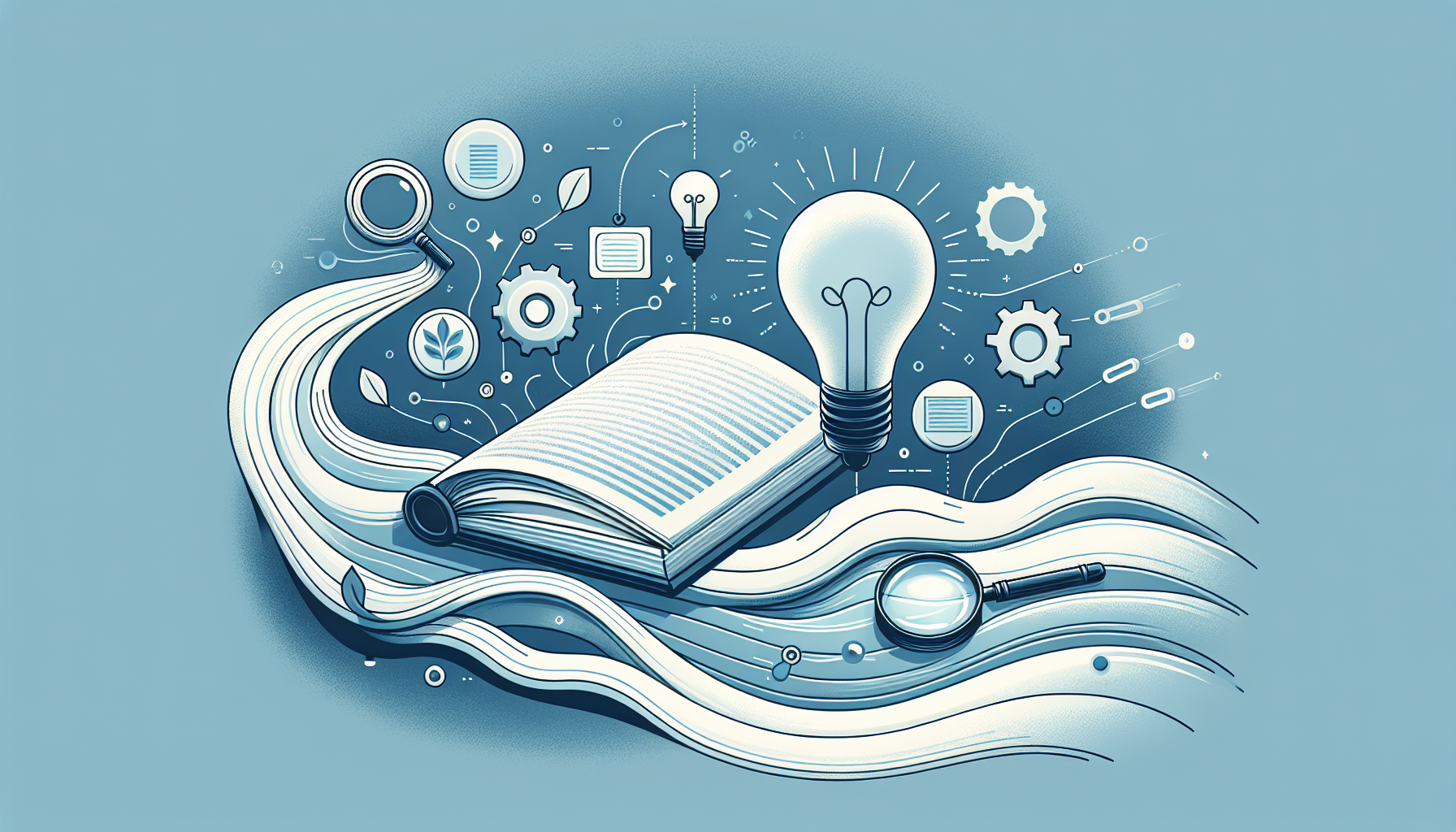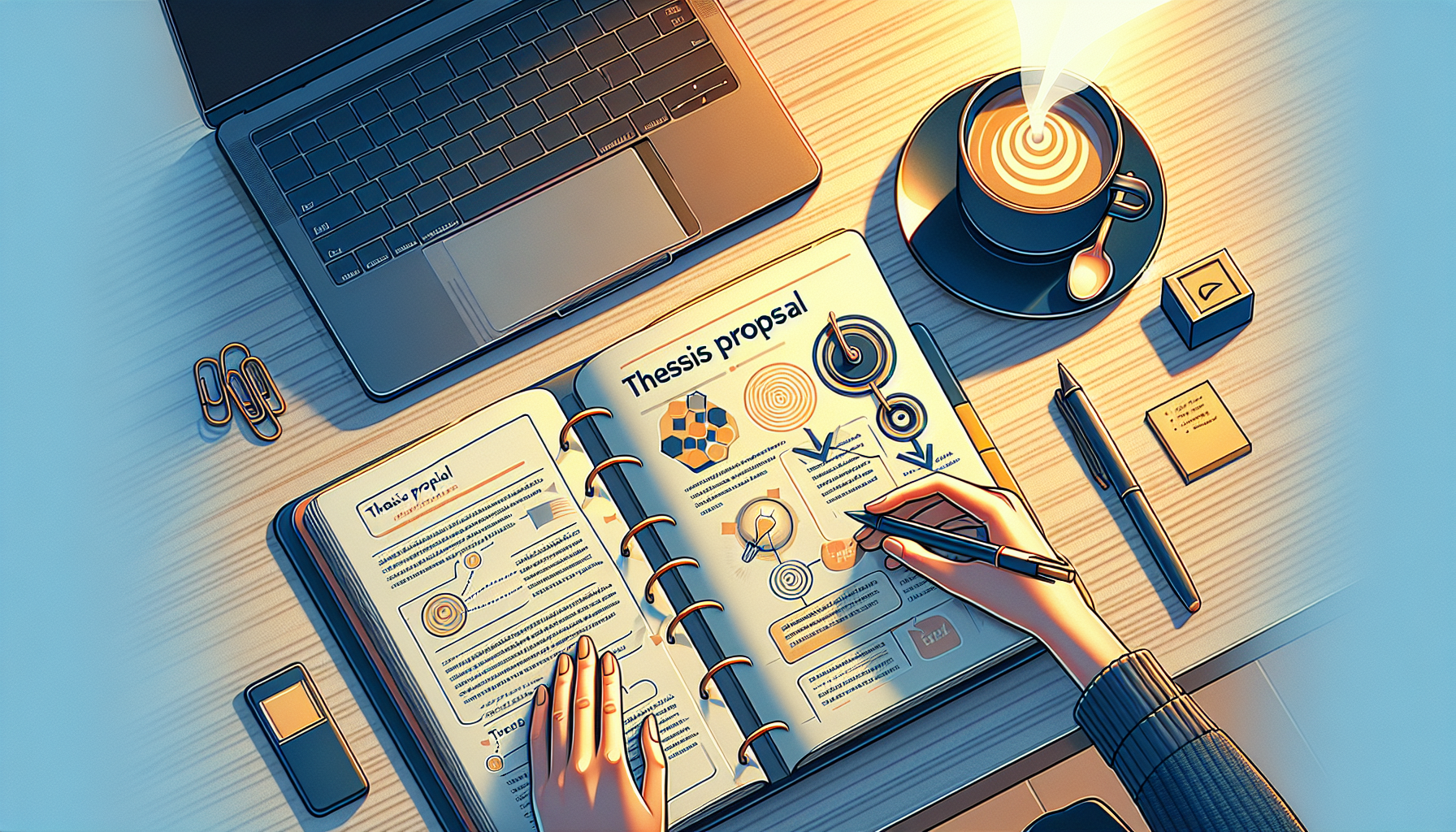So, you’re struggling to develop your thesis and feeling a bit lost? Don’t worry—you’re not alone! Many students find themselves staring blankly at a screen, unsure of what direction to take. The good news is that with the right prompts, you can unlock a world of ideas and structure for your research.
If you stick around, I promise you’ll discover some fantastic ChatGPT prompts that will help you brainstorm, refine your thesis, and gather supporting evidence like a pro. Imagine having a trusty sidekick that can guide you through every step of the process!
Get ready, because we’ll explore everything from crafting compelling thesis statements to identifying gaps in existing research. With these tips, thesis writing might just become your favorite part of academic life!
Key Takeaways
- Use specific ChatGPT prompts to brainstorm and develop your thesis ideas.
- Refine your research question by asking for clarity and examples specific to your topic.
- Gather supporting evidence with prompts that list key studies and relevant articles.
- Identify research gaps by analyzing literature and looking for underexplored areas.
- Generate counterarguments to strengthen your thesis and address opposing views effectively.
- Create a structured thesis outline using ChatGPT to visualize your writing plan.

Top ChatGPT Prompts for Developing Your Thesis
Using ChatGPT to develop your thesis can streamline the often daunting process of academic writing.
Here are some prompts you can use to get started:
- “Generate at least five unique thesis topics related to [subject area].”
- “What are current trends in [specific field of study] that I can focus on for my thesis?”
- “Suggest potential research angles for a thesis on [thesis topic].”
- “Provide key themes in recent literature regarding [specific topic].”
These prompts help carve a clear path towards a focused and relevant thesis idea.
How to Use ChatGPT for Thesis Ideas
ChatGPT can be an excellent brainstorming partner for generating thesis ideas.
Start by providing context and specifics about your field and interests.
Here’s how to utilize ChatGPT for this purpose:
- Prompt with your specific course or subject, e.g., “List three potential thesis statements in the field of environmental science.”
- Ask for variations of a previous idea, like “What are alternative perspectives on the thesis statement: [previous thesis idea]?”
- Request historical or theoretical background, such as “Provide a brief overview of [theory/phenomenon related to your subject].”
Regularly interacting with ChatGPT this way can provide constant inspiration and refine your thoughts.
Prompts for Structuring Thesis Statements
A strong thesis statement is crucial for guiding your argument and maintaining clarity.
Use these prompts to help structure your thesis statements effectively:
- “Help me create a thesis statement for my research on [topic].”
- “What elements should be included in a solid thesis statement for [specific argument]? Give examples.”
- “Revise the following thesis statement for clarity: [your thesis statement].”
- “Suggest a clearer way to express the argument in this thesis statement: [existing statement].”
These prompts offer opportunities to refine your thesis statements, ensuring they are concise and compelling.
Prompts to Refine Your Research Question
Refining your research question is essential for focusing your thesis and guiding your research efforts.
Here are some practical prompts to help with this process:
- “What makes a good research question for [topic]? Provide specific examples.”
- “Refine this research question to make it more specific: [your research question].”
- “List common pitfalls when formulating a research question in [specific field].”
- “How can I narrow down my research question about [your topic] to something manageable?”
Using these prompts will help ensure your research question is focused, clear, and conducive to in-depth inquiry.

Prompts for Gathering Supporting Evidence
Gathering robust supporting evidence is fundamental to bolstering your thesis argument.
Here are some effective prompts you can use with ChatGPT to collect relevant evidence:
- “List key studies that support the argument in my thesis about [thesis topic].”
- “What are the most cited articles regarding [specific topic] in [field of study]? Provide a summary.”
- “Generate an annotated bibliography for the following articles: [insert articles].”
- “Identify recent empirical studies relevant to my thesis statement: [your thesis statement].”
Using these prompts helps you gather diverse sources to flesh out your argument and enhance credibility.
Using ChatGPT to Identify Gaps in Existing Research
Finding gaps in existing research can lead to valuable contributions in your field of study.
Try these prompts to help ChatGPT identify potential research gaps:
- “What areas in [specific topic] lack sufficient research?”
- “Summarize recent findings in [field of study] and highlight any unanswered questions.”
- “Analyze the literature on [topic] and identify inconsistencies or overlooked themes.”
- “What are emerging trends in [field of study] that could benefit from further investigation?”
These questions not only pinpoint gaps but also help steer your research towards an underexplored area.
Prompts for Generating Counterarguments
Addressing counterarguments strengthens your thesis by showing you’ve thoughtfully considered opposing views.
Here are prompts to help you generate and articulate counterarguments:
- “What are common counterarguments against the thesis statement: [your thesis statement]?”
- “Provide strong counterpoints to [specific argument] regarding [topic].”
- “What are potential weaknesses in my argument on [topic]? Suggest how I can address them.”
- “Explain the perspective of someone who disagrees with [your thesis].”
By using these prompts, you can ensure that your thesis is robust and well-rounded, ready to withstand scrutiny.
How to Generate a Thesis Outline with ChatGPT
A well-structured outline serves as a roadmap for your thesis, ensuring coherent flow and organization.
Follow these steps to create an outline with ChatGPT:
- Begin by typing, “Create a thesis outline for [your thesis topic].”
- Request specific sections: “Outline the key chapters for a thesis on [subject].”
- Ask for detail: “Break down Chapter 1: [chapter title] into subtopics.”
- Refine your outline with specific prompts: “What should I include in the methodology section of my thesis outline?”
This method helps you visualize the structure of your thesis, making it easier to write your chapters later.

Prompts for Writing a Thesis Proposal
Writing a thesis proposal is essential for outlining the intent and scope of your research.
The proposal communicates your research idea, methodology, and significance.
Here are some useful prompts to craft a compelling thesis proposal with ChatGPT:
- “Draft a thesis proposal summary for my research on [topic].”
- “What elements should I include in my thesis proposal about [your subject]?”
- “Create a methodology section for my thesis proposal on [topic].”
- “Outline the objectives of my thesis proposal, focusing on [specific goals].”
By using these prompts, you can ensure your thesis proposal is clear, structured, and persuasive.
Collaboration Prompts: Working with ChatGPT on Your Thesis
Collaborating with ChatGPT can boost your thesis writing efficiency and creativity.
Think of it as having a brainstorming partner available anytime.
Here are some prompts to enhance your collaboration with ChatGPT:
- “Help me brainstorm ideas for my thesis on [subject area].”
- “Suggest ways to improve the clarity of my thesis argument: [your argument].”
- “Revise the following paragraph for my thesis: [insert paragraph].”
- “Generate a list of potential sources for my thesis on [topic].”
Engaging in this interactive way maximizes your use of ChatGPT, making it a valuable asset in your thesis journey.
Tips for Customizing ChatGPT Prompts for Your Topic
Customizing your prompts for ChatGPT ensures that you get the most relevant and tailored responses.
Here are some tips to help enhance your interaction with ChatGPT:
- Use specific language and terminology related to your field: “Provide recent findings on [specific theory or research].”
- Frame your prompts with detailed context: “What are the implications of [specific event] in [subject area] for my thesis?”
- Mention desired format: “Summarize the key points of [article or study] in bullet points.”
- Iterate on responses: “Can you provide further details on [specific point] mentioned earlier?”
These strategies will help you get targeted outputs that support your thesis effectively.
FAQs
You can use ChatGPT to brainstorm topic ideas, refine concepts, and explore different angles. Prompts like “What are the current debates in [your field]?” can yield relevant thesis topics and help you identify areas of interest.
ChatGPT can help craft thesis statements by asking for specific criteria like clarity and argumentative strength. Use prompts such as “Help me form a thesis statement for [topic] that includes [key points].” for tailored suggestions.
To refine your research question, use prompts like “What are the main challenges in researching [topic]?” or “Can you suggest specific aspects of [topic] that need further exploration?” This will provide a focused direction for your inquiry.
Yes, you can prompt ChatGPT with questions like “What are the overlooked areas in [field] research?” This will assist in uncovering existing gaps and suggest perspectives for further investigation.
